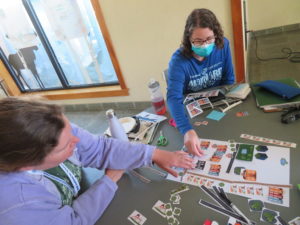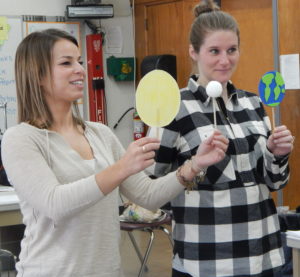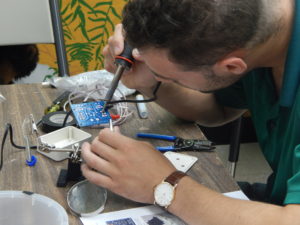The Wade Institute offered Approved Courses for Accelerating Science: Open Access Professional Learning (OAPL). Eligible Massachusetts educators were able to take these programs at no cost. Please visit the DESE OAPL website to learn more.
Visit our Past OAPL Programs page to learn more about past offerings!



OAPL Course Qualifications
OAPL courses were open to any currently-employed Massachusetts public school educator whose work related to science in grades preschool through 12. This included general education teachers, special education teachers, ESL or language support teachers, principals, coaches, and other school or district administrators whose work related to science. OAPL courses were not open to higher education faculty or administrators.
Visit DESE’s OAPL page for more information and contact info for further questions about qualifications.
Early Access Enrollment:
Educators in the following districts or on emergency licenses received priority during the first three days of enrollment.

Educators who hold an emergency license and are currently employed in an eligible role in one or more of the following fields may enroll during the Early Access period: Early Childhood; Elementary; Moderate Disabilities; Biology; Chemistry; Earth & Space Science; General Science; MS Math/Science; Physics; Technology/Engineering.
Course Completion Requirements:
Per DESE guidance, course completion required that participants:
1. Attended course sessions.
2. Completed pre and post-knowledge assessment.
3. Completed an end of course survey.
4. Graduate credit were available for most courses and involved additional work. There was a fee for the graduate credit which was not covered by DESE.
Note: Only participants who met these requirements were eligible for PDP certificates and stipends/substitute funds.
Stipends and PDPs:
Substitute Pay: If the participant attended the PD during a scheduled school day, the district received a payment of $150 per day for the substitute upon course completion.
Stipend: If the participant attended the PD when school is not in session, the participant received a stipend of $150- $450, depending on the length of course upon course completion.
PDPs: A certificate for PDPs based on the length of the course was awarded to participants upon course completion.
Wade Institute OAPL Courses:
Participants were able to enroll in as many Wade Institute OAPL courses as you chose, but were only able to enroll in one (1) course where they received free tuition per Fiscal Year (June 30th, 2023 – July 1st 2024). This was so that as many individuals as possible had access to these opportunities. If participants took an OAPL course with free tuition during this Fiscal year and wanted to take another course, they needed to pay the non-OAPL-qualifying rate for any subsequent courses until the Fiscal year reset.
